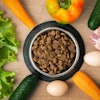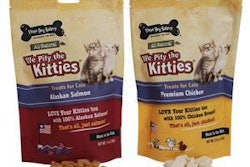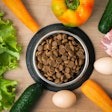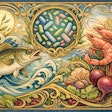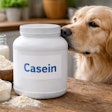Attendees of the Waltham International Nutritional Sciences Symposium, held October 1-4 in Portland, Ore., learned about about the "link" between issues relating to what humans eat and concerns over what pets eat from Dr. Karyl Hurley, director of Global Scientific Affairs for Mars Petcare, which helped organize the event. The symposium drew food scientists from academia on both the human and animal side, veterinary nutritionists, representatives from petfood companies and leaders in veterinary medicine from 24 countries.
According to Theresa Nicklas, professor of pediatrics at Baylor College of Medicine in Houston, Texas, USA, one example of a dietary issue that affects both people and pets is obesity, which is called an "epidemic in many nations around the world, especially among children." Nicklas described various parental styles, some now thought to be significant factors in explaining the rise in overweight and obese children.
Dr. Alex German, of the University of Liverpool in England, suggested that while lifestyle, such as a lack of exercise, has been examined as an explanation for weight gain in pets, "parental" style may also play a important roll. As in people, indulgent or authoritative pet "parents" may unintentionally encourage weight gain in their animals. "If veterinarians can predict (pet owner) parental style, perhaps they can more effectively prevent obesity," German said.
Another topic discussed at symposium relating to people and pets is the diminishing of traditional protein sources, such as beef, pork, lamb, chicken and turkey. "In short, the issue is sustainability," said Dr. Kelly Swanson, an associate professor in the Department of Animal Sciences and Division of Nutritional Sciences at the University of Illinois.
Increasingly, less land is available for raising animals for food production, while simultaneously human populations are rising around the world, she said. Many speakers suggested that the future for people and pets may include alternative protein sources.
One solution may be insects, according to Dr. Guido Bosch, a researcher at Wageningen University in The Netherlands. Comparing various bugs, he said mealworms are the highest in fat (among insects tested) and protein.
